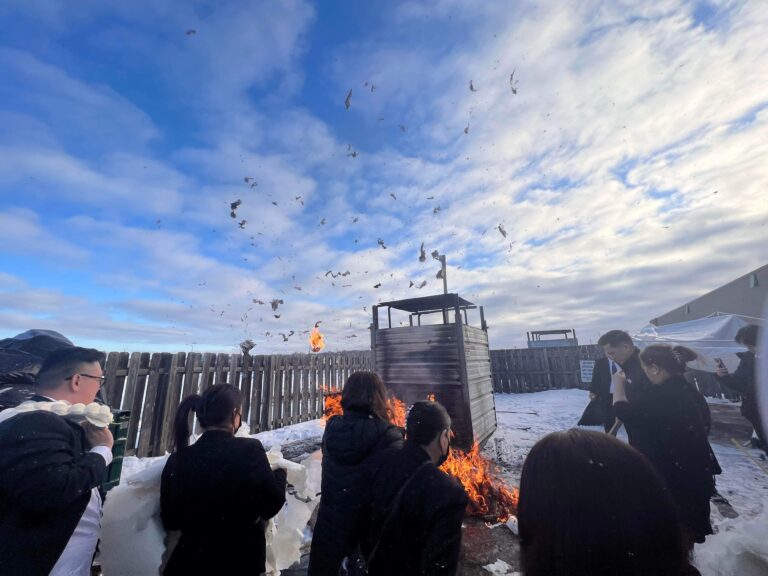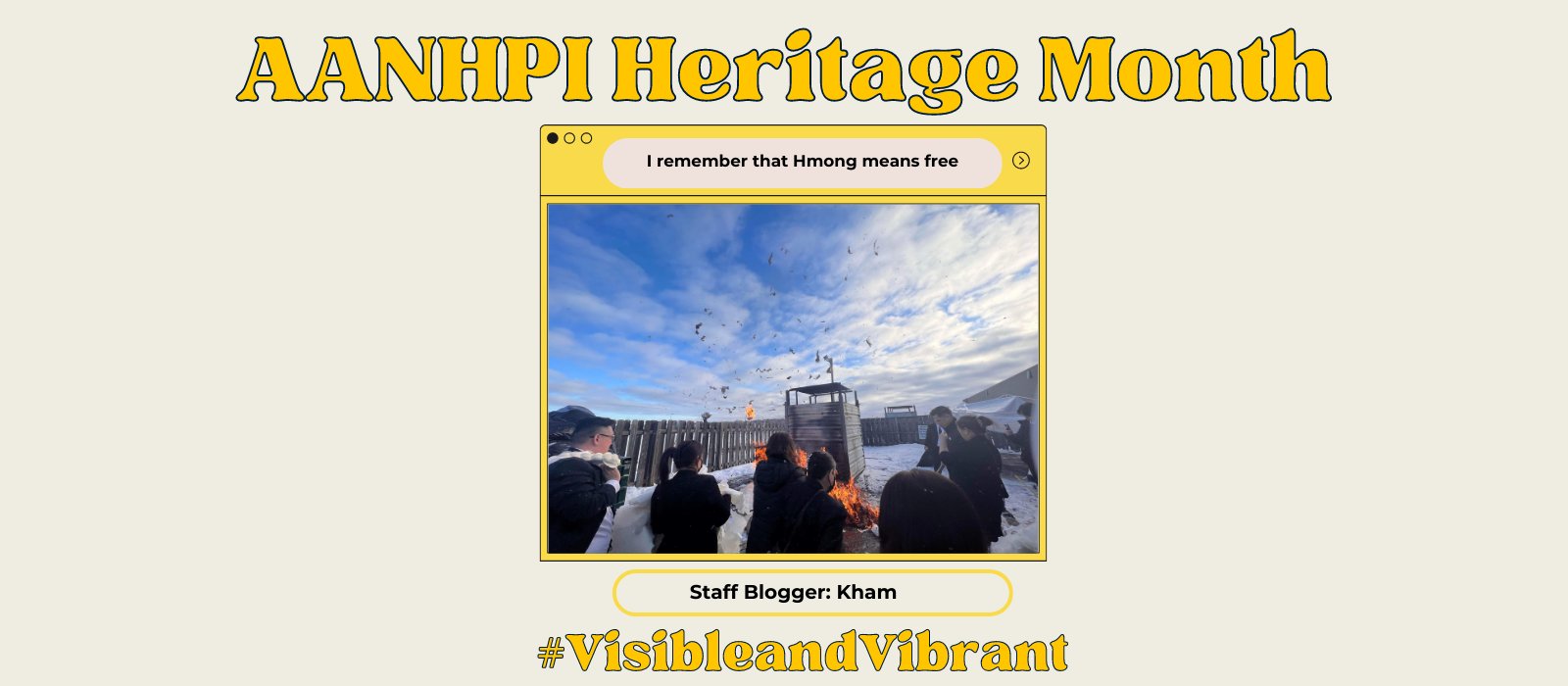By Kham Moua. This article originally appeared on SEARAC’s blog.
The night was filled with the heat of a blazing fire and the sight of countless sparks of paper swirling in the air. The darkness slowly faded into the first light of dawn, marking the final evening of my grandfather’s soul release ceremony. The ceremony was lavish, with a nonstop procession of individuals entering rooms adorned with white and gold linens, decorated with flowers and meticulously arranged paper ingots. In the past, it took a whole week for the shaman to guide the spirits of our loved ones to their place of birth, but in the United States, it was shortened to a mere three days and nights. Although we laid an empty casket to rest, when I recall that fire, I want to believe that after 20 years of resistance in Laos, my grandfather finally found the freedom he sought.
For me, the Hmong culture is a reminder of that night, a dream of liberation that has been brewing for centuries. My culture doesn’t evoke memories of specific foods, melodies, or performances. Instead, it summons memories of the words we spoke, the clothes we wore, the customs we practiced from my youth that had their roots in the countries that exploited and marginalized us and forced my people to undertake a journey to the Fresno valley and the snowbanks of Minnesota.

Photo courtesy of Kham Moua
My culture serves as a solemn reminder of the grandfathers taken from me by American conscription, land mines, and wars — stolen memories that rise to the surface every time I have needed to clarify the identity of the Hmong, recount our history, and justify our right to have a voice at every policy-making table.
“We are an indigenous people to Southern China and Southeast Asia who have long fought for freedom in every country we have resided in. Our resettlement in the United States is mere severance for the thousands of us conscripted by the United States to save American pilots and the many thousands more that died when the new government threatened to exterminate the Hmong ‘to the last root,’” I say often in my career for over a decade.
My commitment to supporting refugee and Southeast Asian American communities is deeply rooted in my family’s history and my grandfather’s legacy. As a child, I grew up hearing stories of how he returned to Laos after crossing the Mekong, choosing his people despite the risks. By continuing my grandfather’s legacy, I hope to honor his sacrifices and help to build a better country so that we can truly be free. I work at SEARAC today because I believe that it is crucial to advocate for refugees and those who have experienced profound loss, and to ensure that they are not overlooked or abandoned by this country or its people.
So, when I think on my people, on my culture, I remember that to be Hmong means to be free.
The opinions expressed in this article are those of the author and do not necessarily reflect those of the Diverse Elders Coalition.

